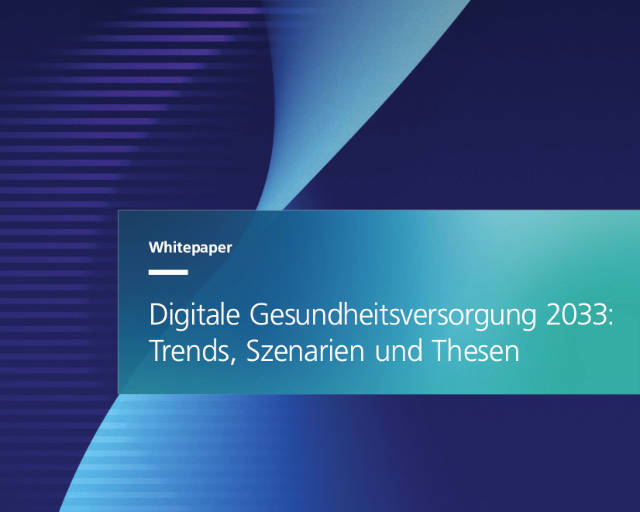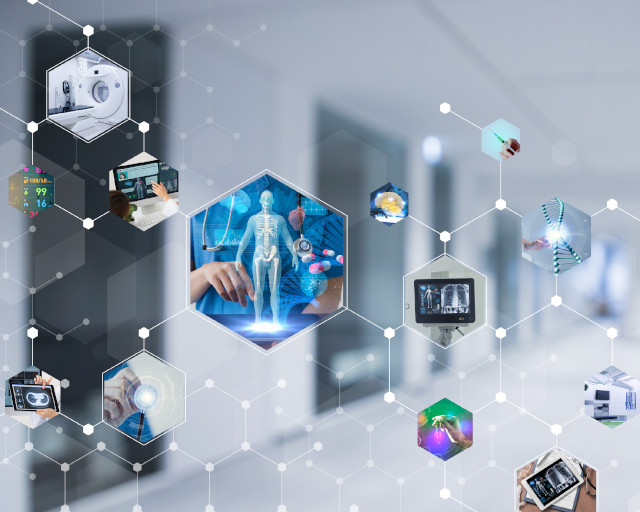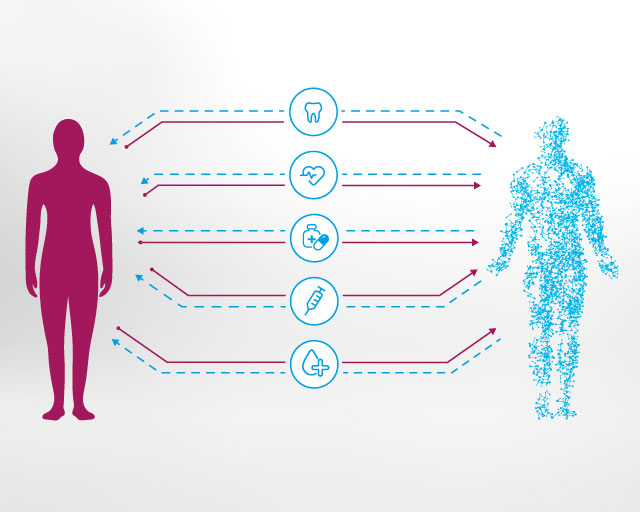Data set the pace: The basis for tomorrow’s medicine
Smartphones and portable sensors (so-called “wearables”) have become an integral part of our everyday lives. Along with numerous other sources, they provide valuable health data, which form the basis of digital health and can offer relevant added value for medical progress. This includes, for example, data from imaging techniques and routine data recorded electronically in clinical practice.
In order to use the potential of data efficiently, important prerequisites must be observed. Privacy must be protected when collecting and processing data by complying with applicable data protection regulations. At the same time, it is crucial to consider interoperability standards in order to be able to build a functioning infrastructure with health data. Finally, it is important to create trust in the results of data analyses and to strengthen competencies in the use of health data.
This is exactly where we support you with our expertise and technical solutions in the field of data science!
Dependable AI: Dependable use of Artificial Intelligence and data
The prerequisite for the use of Artificial Intelligence is the availability of health data. The areas of application range from drug development to precision medicine. The advantages are obvious: AI is extremely cost-effective, is always ready to use, and can process data volumes that far exceed human comprehension. And yet it is not infallible.
Several factors pose a challenge when using AI: a distorted or missing data basis, the analysis methods used, and a lack of competence in the use of health data. In digital health, wrong decisions are associated with considerable risks. To minimize the risk to life and limb, it is important to provide adequate safety assurance for AI systems. This is exactly how we envision tomorrow’s medicine: digital, networked, and safe.
We design dependable AI systems for critical areas of application and pass on our expertise in training courses.
Further information on Artificial Intelligence and data management
- Blog post “AI in Medicine” [in German]
Exploiting the potential of Artificial Intelligence and evaluating data in an automated manner





